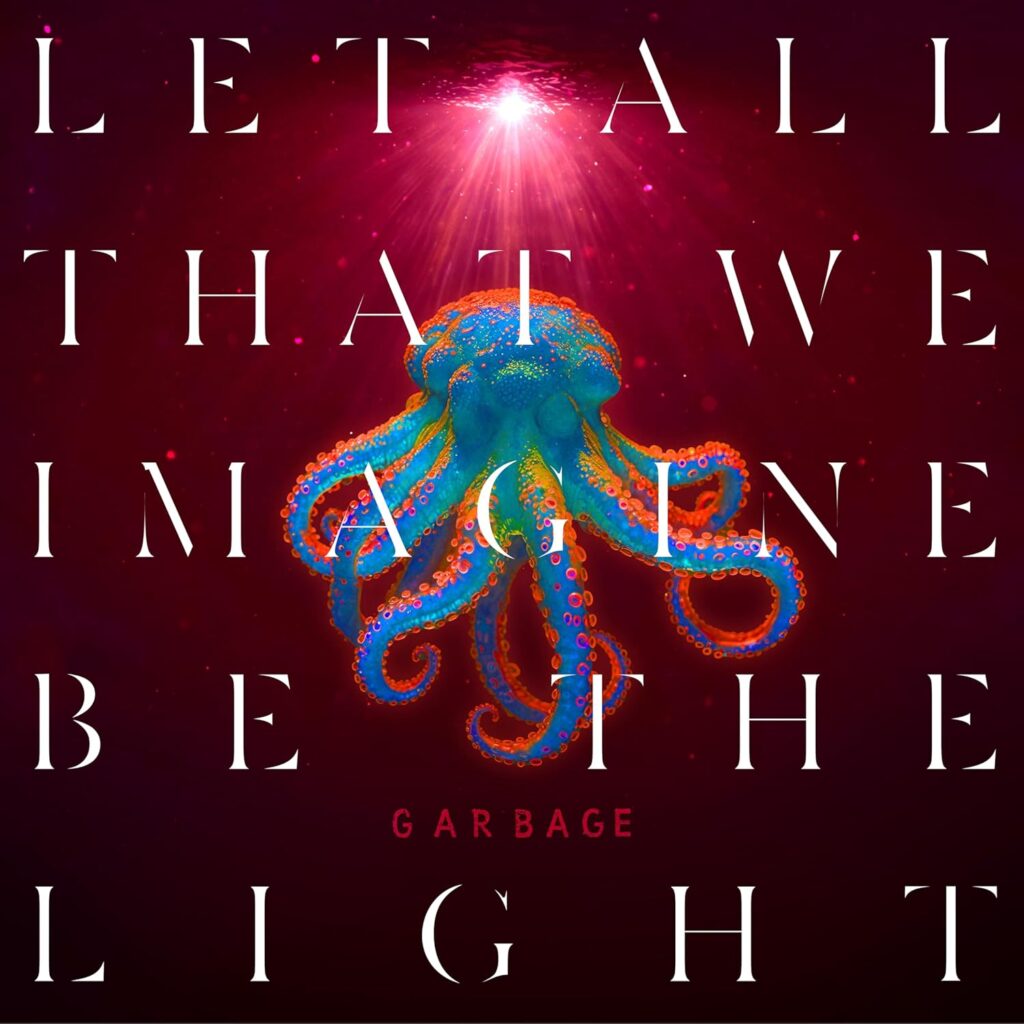
I wanted to start this review on a positive note, for a new Garbage album is always cause for celebration. Yet, while it’s unarguably exciting to have the long-awaited follow up to 2021’s exceptional No Gods No Masters in my hands, there’s a tinge of bitterness to Let All That We imagine Be The Light, knowing that Shirley Manson still has to fight to be heard in an industry that once seemed to be cracking under the weight of empowered female artists.
In a recent article, the New York Times asked the pertinent question – “what happened to the culture that created all those amazing female artists in the 1990s? From Liz Phair to Björk to PJ Harvey to Hole to Bikini Kill to Tori Amos and others.”
It’s a fair point.
For those of us who grew up in that era, the question of sexism appeared to have been settled by any number of artists kicking in doors, only for a slew of recent revelations (including an absolutely damning 2024 report) to demonstrate that sexism is still rife within the music industry. It’s unbelievably frustrating but, as Shirley points out, conservative society loathes a dangerous woman, with the result that the industry simply closes ranks on any artist not perceived to be toing the line.
Inevitably, such inequality is a frequent subject on this, the band’s eight album, which finds Shirley tackling head on the issues faced by female artists, including those more nuanced forms of sexism which masquerade as concern over age (not something that applies, apparently, to the likes of The Rolling Stones). In short, the band may be imagining the light but only because they so often find themselves surrounded by darkness, and there’s a significant edge to the album as a result.
You can feel the tenson from the moment the album opens with the crunchy rocker, There’s No Future In Optimism. A track that finds the band in thrall to Depeche Mode circa Ultra, it’s all pulsing synths, taut rhythms, and reverb-drenched guitar, with Shirley’s voice swirling through the heart of the mix. It’s an engaging start and it’s quickly followed by Chinese Fire Horse, an aggressive little beastie that finds Shirley going on the attack over the ageism and sexism that still dominates the entertainment industry. It’s a tough listen, neatly distilling the vitriol of Shut Your Mouth into an even more potent form, as Shirley demands “wait a minute, wait a minute, wait a fucking minute, wait a minute – I’m not done”. A bruising takedown of ageism’s double standards, delivered with a power that leaves the listener rocked to their core, the industry may have to deal with Shirley on sufferance, but she’s damned sure they’re going to listen, no matter how much they may try to stop up their ears.
The album’s aura remains darkly oppressive on Hold, Shirley’s sweet vocal surrounded by glowering synths and Butch Vig’s industrial strength percussion. Yet, if the world is on fire, there’s still a value to personal connection, and Hold finds Shirley seeking solace in closeness, even if the song’s conclusion finds her desperately trying to keep from running. It’s a perfect juxtaposition of tough and vulnerable – a sense that continues into Have We Met (In The Void), which details infidelity in the most personal and harrowing fashion. With Shirley growling “HAVE YOU MOTHERFUCKERS BEEN SEEING EACH OTHER?” it’s reminiscent in places of PJ Harvey, and the song is delivered with a razor-sharp combination of heartbreak and hatred. Then there’s Sisyphus, which once again finds the band nodding to the darkest impulses of Depeche Mode, as the lyrics detail the weight of fame in an increasingly challenging and intrusive landscape.
With the album at its halfway point, the band cleverly shift the pace with Radical, a trip-hop-infused piece with multitracked vocals and a woozy beat that harks back to the slow burning beauty of Milk. It allows a moment to reflect before the band unleash the darkwave nightmare of Love To Give, which comes clothed in heavy, Numan-esque armour and wielding a punishing chorus. The Depeche Mode vibes return on the snarkily titled Get Out Of My Face AKA Bad Kitty, the descending guitar motif straight out of Violator, albeit with a heavier chorus following close behind. Up next, the text-speak aping R U Happy Now has a dirty industrial beat, titanium-plated synths and a sneering vocal that stands as one of the hardest single performances of Shirley’s career. It leaves the remarkable The Day That I Met God to wrap the album up on a really strong note. Reminiscent of Davidge’s stunning Slo Light, with its liquid guitar and descending strings, it’s one of the most affecting pieces the band have yet produced.
Garbage have been remarkably consistent in the quality of their releases over the years – perhaps not a huge surprise when you consider the expertise within the band. Even so, with Let All That We imagine Be The Light, the band have composed a series of pieces that so perfectly align with Shirley Manson’s beautifully constructed lyrics that it takes the breath away. From the snarling fury of Chinese Fire Horse and Have We Met (In The Void), to the unutterable beauty of The Day That I Met God, the album offers both catharsis and redemption, taking the listener on a journey that, while it travails some dark passages, eventually finds its way to the light. 9/10



